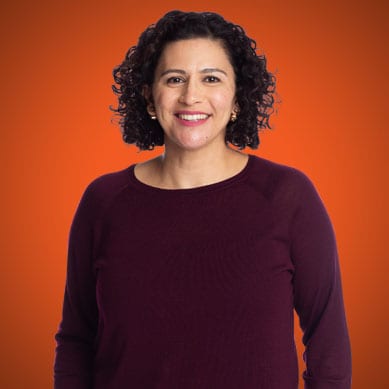Mónica Gutiérrez is a PhD student in Social Work at Arizona State University. She is part of the Health Policy Research Scholars Cohort 2018.
Before we begin, tell us a little bit about yourself and what your research interests are.
I am a daughter of immigrants and a first-generation college student. I was born near the U.S./México border and raised in the California Central Coast. I received a BA degree in La Raza studies and a minor in Industrial Design from San Francisco State University, and a Master of Social Work degree from Arizona State University. My research work pushes the boundaries of traditional community-based participatory research by continuing the work of previous scholars, while also validating the viewpoints and lived experiences of people of color, who are often not accounted for in traditional social science research. I am usually at the crossroads of activist and researcher as I find myself attending and participating in protests, city council meetings, and stepping back to observe the space in which all this is occurring.
Broadly, my research focuses on gentrification, power, displacement, and connection to place within historically marginalized neighborhoods, and how these factors contribute to the health and well-being of families. I am particularly interested in the use of community-based participatory research to inform social policy, urban planning, and systems change.
What’s the story behind why you’re doing what you’re doing?
Forced displacement is woven into my family’s history dating back to my ancestors. It is this story that drives my interest in learning about experiences related to displacement and the discriminatory practices and policies that created our urban landscape. My personal experience also provides me with the bicultural lens with which to study this phenomenon.
Prior to enrolling in my doctoral program, I spent several years in various sectors of social services, including: veteran’s health, criminal justice, child welfare, and health promotion. While I enjoyed working one-on-one with families, I began to realize that my individual efforts only temporarily remedied a family’s situation. What were lacking were policies and programs to adequately address poverty, and the adverse health and social outcomes that result from poverty. It was then that I began to pursue research and policy work.
Tell us about a project you are currently working on that you are excited about?
For the past year and a half, I have embedded myself into the South Mountain neighborhood in Phoenix, Arizona, collecting ethnographic data that will help to inform my dissertation work. The community has come together to fend off what many view as transit-induced gentrification. In 2017, the city announced receipt of $704.5 million in federal transportation dollars to expand the current light rail system from downtown Phoenix through the heart of the South Mountain community. The proposed 4.8-mile light rail extension immediately piqued my interest, and I began to follow the story. South Mountain has historically been under-resourced and has the highest number of toxic industrial yards in the city. Residents are asking the city to reallocate the federal transportation dollars to much-needed infrastructure within the neighborhood. I hope to examine the community’s response to the decisions made by those in power.
Who is a researcher you admire and why?
I admire any researcher who challenges the usual conventions of academia and research. In particular, Dr. Stephanie Lechuga-Peña, Dr. David Becerra, and Dr. Felicia Mitchell, faculty in the School of Social Work at Arizona State University. I admire their ability to mentor students, balance their research and faculty commitments, all the while maintaining a strong connection with their families. Each of them is committed to building, promoting, and sustaining an inclusive and diverse academic environment. One that cultivates the advancement of our Social Work values. Their work stands as a guiding principle for the type of researcher I hope to become.
How has being an HPRS Scholar helped you during your time as a doctoral candidate?
The amount of support I received as a result of being an HPRS scholar has been critical to my success in the doctoral program. My HPRS community identifies with my struggles and helps me to navigate my academic journey with confidence. While at the same time, program activities give me the opportunity to be in spaces first-generation students typically are not able to access. The mentorship I received from program staff and my HPRS mentor, Dr. Molly Dondero, assists me in navigating the complex landscape of higher education. The program has provided me with the opportunity to expand my professional network beyond academia. I have made personal connections with scholars that will last beyond the program.
Ok, here’s a fun question to wrap things up. If you had a talk show, who would your first three guests be?
I enjoy when art, music, and political commentary intersect. I think each informs how we navigate the world around us; it reflects the times we’re living in. My first three guests would be 1) Quiara Alegría Hudes, a Pulitzer Prize-winning playwright who wrote the book for the Broadway musical In the Heights. The story identifies the unseen struggles faced by those living within an immigrant community; 2) Ana Tijoux, a Chilean-French hip-hop artist, her lyrics are socially conscious and provide discourse to global issues; and 3) Eve Tuck, a Unangax scholar in the field of Indigenous and Decolonizing Studies. Her research focuses on the incorporation of Indigenous knowledge into the conception of social policy and social movements. We would discuss how each of them moves beyond the “borders” of their field in ways that produce a shift in the normative form of producing knowledge.

